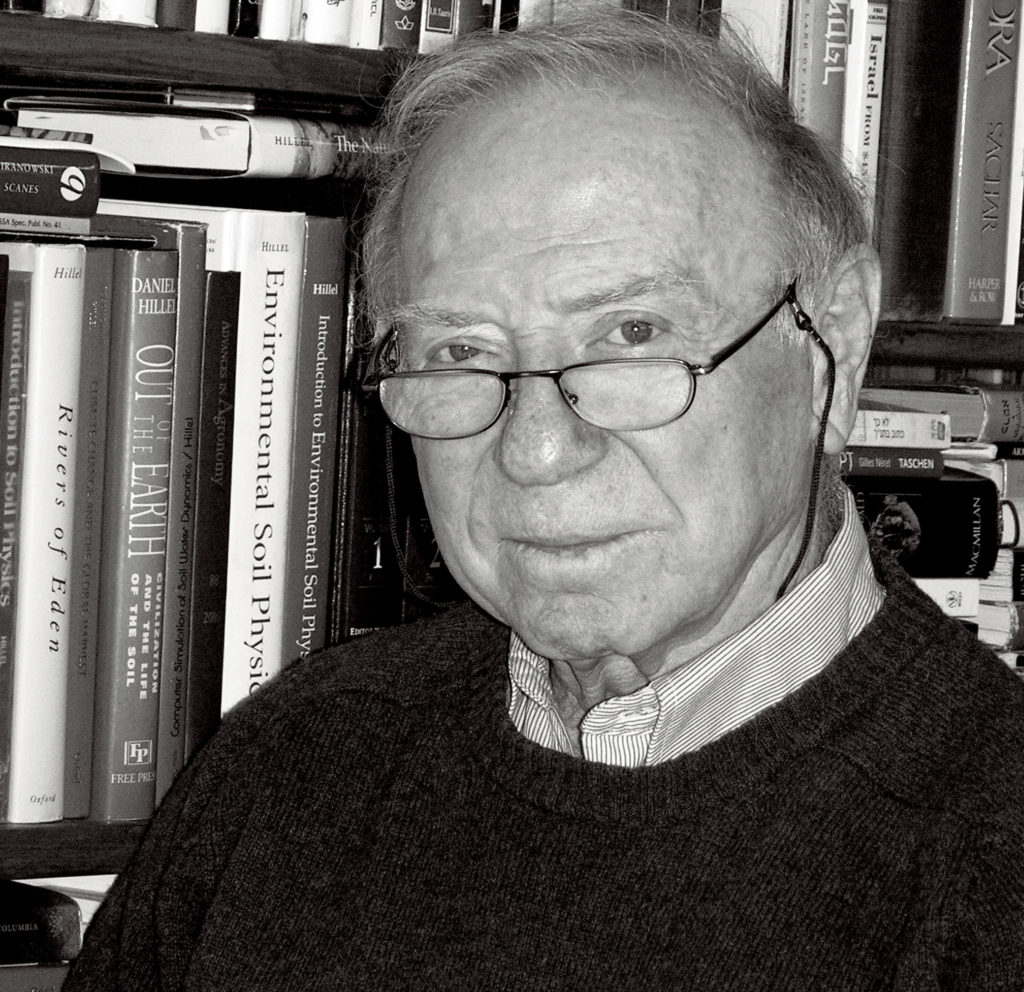There are areas of the planet where people rely on less than a foot of rainfall each year to grow the food they need to feed their communities.
It’s a precarious life, but tools like hyper-efficient drip irrigation and soil preservation methods have made this kind of farming possible in some of the world’s most inhospitable climates.
Daniel Hillel, the 2012 World Food Prize laureate and a 1950 UGA alumnus, spent the better part of his career perfecting these arid-land farming methods in Israel and sharing them with farmers across the Middle East, Africa and parts of Asia.
Hillel will return to campus Nov. 8 to deliver the 2012 D.W. Brooks Lecture at 11 a.m. in the Georgia Center for Continuing Education.
“The World Food Prize is the pre-eminent award for achievement in agriculture and solving problems in the world food supply to prevent hunger,” said J. Scott Angle, dean and director of CAES. “To have one of our graduates selected for this great honor is a tremendous testament to the long history of excellence in our teaching programs and the exceptional quality of our graduates.”
Hillel graduated from the what was then College of Agriculture with a bachelor’s degree in agronomy. After earning his master’s degree at Rutgers University, he moved to the newly established state of Israel where he pioneered research into the use of highly-efficient irrigation systems.
His authoritative texts on soil physics, water-use efficiency and agricultural aspects of climate change are widely cited and have been translated into several languages. Earlier this year, Hillel received the World Food Prize for his contributions to sustainable irrigation practices.
Hillel’s career serves as an example of the way that the right research, developed at the right time can change the lives of millions of people, Angle said.
“Like the World Food Prize laureates before him, Danny Hillel saw an opportunity to apply his expertise to solve a pressing problem and determinedly set about creating a new way of doing things that improved the quality of life and access to abundant food for large parts of the world,” Angle said. “It is that spirit of educating bright young minds, who make discoveries and put them to work for mankind that land-grant universities were created to foster and the World Food Prize was established to honor. Too often, the great humanitarian contributions of scientists like him go unnoticed. We look forward to hearing his story as he returns to this campus for the first time in 50 years.”
